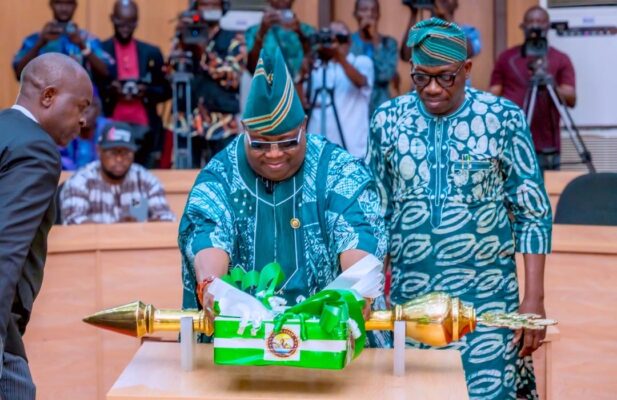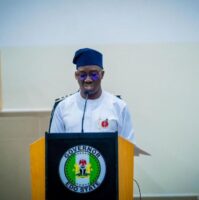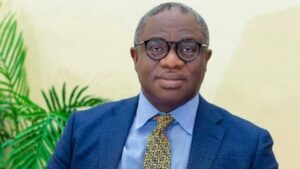Osun State Governor, Ademola Adeleke, has presented a budget estimate of ₦705.7 billion to the State House of Assembly for the 2026 fiscal year.
Tagged “Budget of Economic Transformation,” the proposal comprises a recurrent expenditure of ₦317.41 billion (45%) and a capital expenditure of ₦388.4 billion (55%).
Governor Adeleke explained that the budget which is ₦278 billion higher than that of 2025 reflects his administration’s continued commitment to development and people-oriented governance.
He said the 2025 budget recorded remarkable milestones in its implementation and added that the 2026 proposal builds on the achievements of the last three years since he assumed office.
According to the governor, total revenue for the 2026 fiscal year consists of ₦221.68 billion from FAAC allocation and ₦199.57 billion as independent revenue while Other Receipts stand at ₦268.35 billion.
On the expenditure side, Recurrent Expenditure amounts to ₦317.41 billion, including ₦135 billion for personnel costs and ₦182.4 billion for overheads, pensions, and gratuities.
The Capital Expenditure stands at ₦388.38 billion.
Read Also
Governor Adeleke noted that the 2026 budget proposal is based on the 2026–2028 Medium-Term Expenditure Framework (MTEF) as required by the Osun State Fiscal Responsibility Law of 2012.
He further stated that his administration has reversed years of infrastructure decline, completing over 300 kilometers of roads across the three senatorial districts, including flyovers to ease traffic congestion.
In his remarks, the Speaker of the Osun State House of Assembly, Rt. Hon. Adewale Egbedun, commended the governor for his transparency, prudence, and accountability in managing state resources.
He assured that the Assembly would ensure speedy passage of the Appropriation Bill to meet the yearnings of the people.
Egbedun also lauded the positive impact of previous budgets particularly the 2024 and 2025 fiscal plans on infrastructure, education, healthcare, social inclusion, and workers’ welfare, describing them as evidence of a government turning policy into tangible benefits for citizens.





